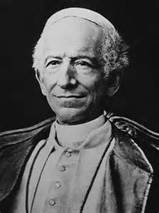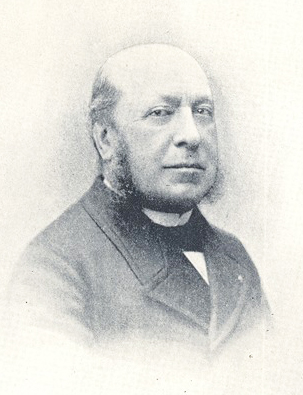the great question of our time, the social question, whose solution is dependent on faith, reason, revelation, and natural and Christian morality...
Fr. Dehon and “The Social Question” (Part 2)
|
Christ, the benefactor of society, is held up by them as the enemy. Open warfare has been declared on him. He is pursued, hunted, chased from the schools, from the hospices, from the courts, from the cemeteries. They would like to erase all mention of him from legislation and diplomacy. They would even like to remove Christ from history and literature.
|
|
Two issues later, he turned to the struggle of workers and acknowledged the inroads made by socialism:
|
|
The Revolution overturned the Christian mode of living for laborers. It reduced the influence of the Church and curtailed the faith of the worker and of those who employ him. The people are agitating to rediscover an equilibrium. The socialists proposed some useful measures, but on balance they have as their criterion of validity only the opinion of the crowd, changing, ignorant, and emotional; and as their means of action, they have only violence and strong-arm tactics.
|
 Pope Leo XIII Pope Leo XIII
While noting that The Church will be the “main factor in the recovery,” because it alone “has the full concept of justice and the secret of charity” without which “the lower, suffering classes will not make the best of their fate, nor will the wealthy and powerful be disposed to lend their aid to the disinherited,” he insists that the State and private initiative must also contribute. Government must legislate rest on Sundays, regulate the work of women and children in factories and night work, reform inheritance laws and encourage workers' guilds and insurance. Business needs to “attend to the moral well-being as well as to the temporal well-being of their workers… assist in works of moral teaching, education, relief, and insurance funds. They must unite with their workers in cooperative associations.” Finally, workers themselves must take initiatives and have their contributions valued.
In the December 1889 issue of The Reign, he again condemns socialism, which “represents the overturning of the order established by God.” Religious faith and socialism he sees as “mutually exclusive expressions.” Only “religion, and Catholicism in particular have enough authenticity to wrest [the worker] away from the seductive hopes of socialism.” However, while the Church has an “essential role [in stopping] the rising wave of socialist democracy, its efforts must be protected against heartless and pitiless exploitation by capitalism. It is incumbent upon the State to come to its aid through legislation protecting labor.” In July 1891 there appeared an article in The Reign entitled “The Encyclical of May 15 on the Social Question.” That was Rerum Novarum, the “long-awaited” and “longest…yet” teaching from Leo XIII on the rights and duties of capital and labor. Dehon quotes the Pope’s statement of the problem and its solution, and adds his own summary of what created the problem: |
|
"The problem is not easy nor free from danger, but it is necessary, through prompt and effective measures, to come to the aid of the lower classes," which as a result of the destruction of the old guilds which protected them; and as a result of unbridled competition, of stock speculation, of the concentration of labor and wealth in a small number of hands, are in a state of "undeserved wretchedness."
|
|
Dehon approvingly notes the Pope’s “refutation” of socialism as a solution, as well as his insistence that
|
|
"A major error is the belief that the two classes are natural enemies. Each has a driving need for the other; there can be no capital without labor, nor labor without capital. The whole thrust of religious truths concerning the economy concerns the rapprochement between rich and poor, by reminding them of their reciprocal duties and, above all, those of justice (his emphasis). The rich and the employers must not treat the worker as a slave, but must respect in him the dignity of man and that of the Christian. Work, far from being shameful, brings honor to a person. What is shameful is to use a person like a cheap instrument."
|
|
To this Dehon adds that “the truth is social harmony, not antagonism,” a principle to which he would adhere for the rest of his life. He also stresses the papal declaration that “labor is the sole source from which the wealth of nations comes.” What were Dehon's other "take-aways" from the encyclical? A few other quotes illustrate what he saw as of central importance:
|
|
"The State must particularly make itself the protector of the weak and the poor."
“Wages must not be insufficient for the worker's subsistence at a moderate level. If he accepts harsher conditions out of necessity, it is a serious injustice." "All of the works which are appropriate for relieving poverty and reconciling the classes...help remarkably in the solution: societies for mutual aid and assistance in case of accidents, organizations for children and adolescents, and (especially) workers’ guilds, which in themselves embrace almost all kinds of works." (again, his emphasis) |
|
FOOTNOTES:
[1] Former French military men and staunch royalists, but also well-intentioned social reformers. [2] Still to come were struggles with two unsympathetic bishops, leading to what he called the “Consummatum Est” (the four month suppression of his congregation by Rome in 1893-4). |
